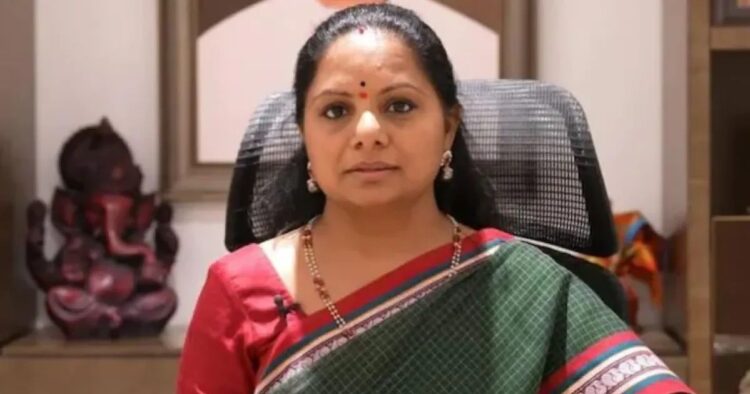The Central Bureau of Investigation (CBI) has issued summons to Bharat Rashtra Samithi (BRS) leader K Kavitha, daughter of former Telangana chief minister K Chandrasekhar Rao, in connection with the Delhi excise policy 2021-22 probe. She is asked to appear before the agency on February 26. This move comes as part of investigations into alleged irregularities surrounding the now-scrapped excise policy.
Sources familiar with the matter revealed that the CBI wants to question K Kavitha regarding certain aspects of the case. This isn’t the first time she’s been under scrutiny; she was previously questioned by the agency in December 2022. Additionally, the Enforcement Directorate (ED) has conducted a parallel investigation into potential money laundering related to the excise policy, questioning her in March 2023.
Nitesh Rana, K Kavitha’s lawyer, declined to comment on the recent CBI summons.
Allegations suggest K Kavitha had connections with Vijay Nair, the then communication in-charge of the Aam Aadmi Party (AAP). Nair reportedly met with liquor businessmen and politicians during the formulation and implementation of the controversial excise policy in Delhi.
One of the key charges levied by both the CBI and ED is that Sameer Mahendru’s Indospirits Group controlled multiple retail zones in Delhi under the policy, allegedly making substantial kickback payments to AAP leaders. It’s claimed that a group, including K Kavitha, was involved in this process.
During her questioning by the ED in March 2023, K Kavitha was confronted with statements from individuals associated with her, including her former chartered accountant Butchibabu Gorantla and representative Arun Ramchandra Pillai. Both individuals were arrested in connection with the probes.
Butchibabu’s statement implicated K Kavitha in political dealings with Delhi’s CM Arvind Kejriwal and former deputy CM Manish Sisodia. Pillai, on the other hand, was alleged to have facilitated benami investments and participated in cartel formation.
The ED alleges that a portion of the kickbacks from the excise policy was diverted into the AAP’s campaign during the 2022 Goa assembly elections. The “South Group,” which K Kavitha was part of, is said to have played a significant role in these transactions.
The Delhi excise policy 2021-22 aimed to rejuvenate the liquor business in the city by introducing changes in licensing and retail practices. However, the plan was short-lived, with the lieutenant governor recommending an investigation into purported irregularities, leading to its premature scrapping. The AAP attributed this to last-minute changes by the previous lieutenant governor, resulting in lower revenues than anticipated.

















Comments